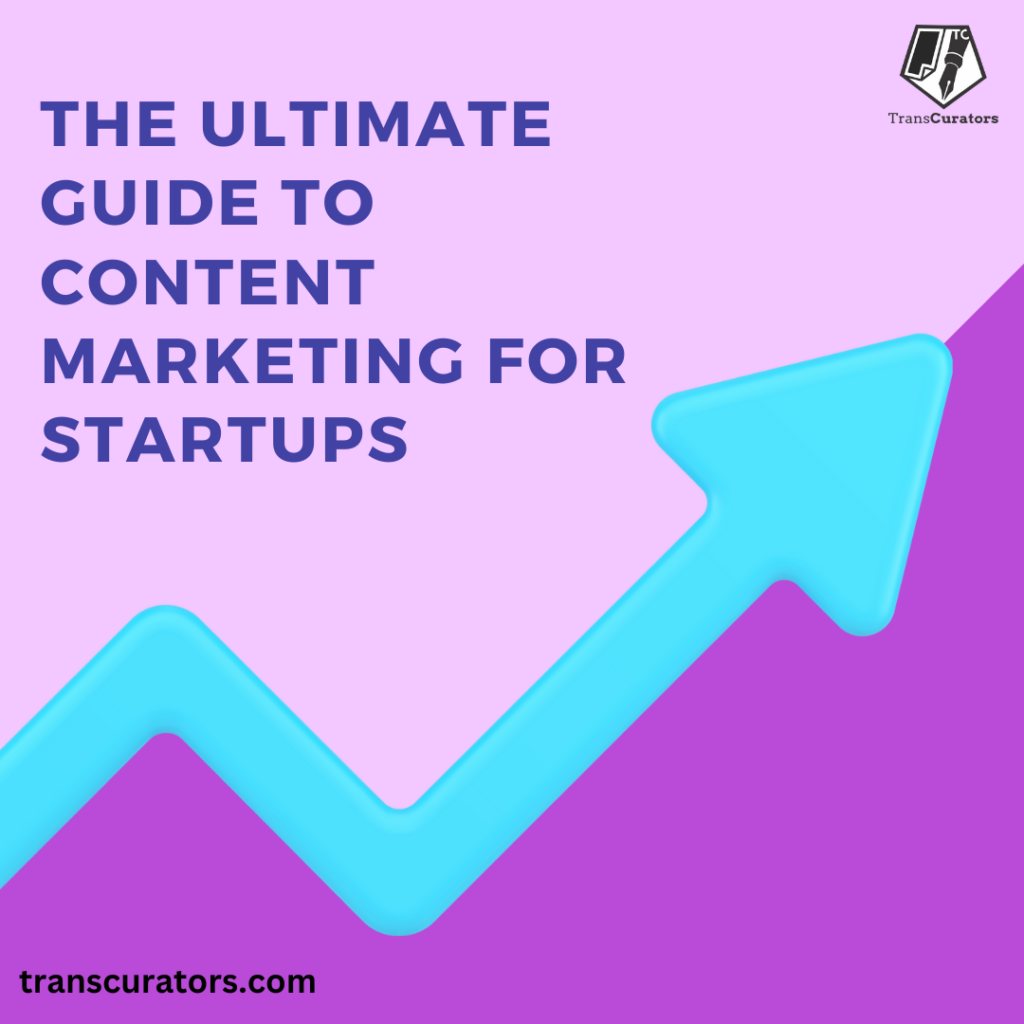Owning and running a startup can get overwhelming at times. From worrying about getting the right funds to being equipped with the latest technologies, there are a lot of things on your plate. One such crucial aspect is having the right content marketing strategy. In today’s technologically advanced world and with the ever-evolving consumer perceptions, it has become necessary for the start-ups to up their game.
In order to establish a brand image for your business, content marketing is an important aspect to think about as a startup. The marketing of your startup’s products or services is crucial because, without an effective, long-term strategy, you won’t reach your ideal customers. You will waste your time and energy if you don’t have clear objectives, a direction, and a measure of success.
Before diving into the ultimate guide to content marketing for startups, let’s understand why your startup needs content marketing.
Content Marketing: Why does your startup need it?
Reaching your target audience through content marketing is the key to success for startups. Your brand will be more appealing, and you will be able to set yourself apart from your competitors as a result. To build a long-lasting relationship with your customers, you must design your content marketing strategy accordingly.
In order to succeed at content marketing, you must invest time and resources into developing content that engages your audience and keeps them on board for the duration of their journey with your company. As well as lending credibility to your brand, content marketing efforts are also important. You will build your reputation as an industry expert by publishing shareable articles about your niche.
In order to bring in leads and convert them into customers, startups need to create content that speaks directly to their audience’s needs and pain points. By providing prospects with the information they need to make a purchase decision, content marketing can also help move prospects through the sales funnel. Also, Content Marketing is known to help you increase your organic conversions by 25%.
Let us take a look at the guide to content marketing for startups.
Content Marketing Guide for Startups
Before launching your website or starting off with your promotions, it is necessary to come up with a strategy that will help you in the long run. Read on to find the ultimate guide to content marketing for start-ups.
1.Identify your target audience
Understanding who your target audience is, their needs, and their pain points is critical to creating content that resonates with them. Start by defining their demographics, such as age, gender, location, and education level. Then, consider their interests, habits, and the problems they are trying to solve. This information will help you create content that appeals to them and solves their pain points. Before laying out your strategy, you must be aware of who you are devising the strategy for. Therefore, it is necessary to identify your target audience.
2.Choose the right channels
In today’s world, it has become imperative to leverage the power of online channels. There are many channels available for content marketing, and it’s important to choose the ones that are most effective for reaching your target audience. For example, if your target audience is active on social media, then a strong social media presence may be necessary. On the other hand, if they prefer email, then email marketing may be a better choice. Nowadays, having a strong online presence is necessary as most of the demographic prefers to communicate through online means.
3.Content Calendar
Having a content calendar ensures that you are consistently creating and publishing content that is relevant and valuable to your target audience. Plan ahead and schedule your content in advance to ensure a consistent flow of content. This will also help you avoid last-minute rushes to create content and allow you to plan for special events or promotions.
4.SEO
Researching for keywords and setting up your inbound and outbound links are all the necessary tasks to ensure good Search Engine Optimisation. It is necessary to focus on SEO as it helps your search engine ranking and is responsible for delivering your content to the target audience.
5.Collaborate with Influencers
Collaborating with influencers and industry thought leaders could help increase the reach and credibility of your content. Influencers have a large following and can help introduce your brand to a new audience. Working with industry thought leaders can also help establish your brand as a credible source of information in your industry. Furthermore, an influencer has the power to impact the purchasing decision of a consumer.
6.Analyse your competitors
Before starting off with anything, it is always smart to analyse the moves of your competitors. In order to identify your competitive advantage, break down the analysis into steps to uncover the weak spots and top-performing content of your potential competitors. There are many content marketing tactics that can be utilized to get your content in front of your target audience, including content filtering, search engine optimization, social media engagement, and influencer marketing.
7.Repurpose and update content
Maximizing the value of your content means repurposing and updating it for different channels and audiences. For example, you can turn a blog post into a video or a podcast or update an old blog post with new information. This not only saves time but also helps ensure that your content remains relevant and up-to-date.
Conclusion
No matter what tactic you incorporate into your content marketing strategy, it is imperative to understand that content marketing is much more than just writing good blog posts. It is about creating a strong connection with your target audience and using methods that speak out to them. It is also necessary to understand the fact that content marketing is not something that can be cooked up in a day; it takes time to build, strategies and implement. And, with a solid and well-planned strategy, you can definitely reap the benefits of content marketing in the long run.
